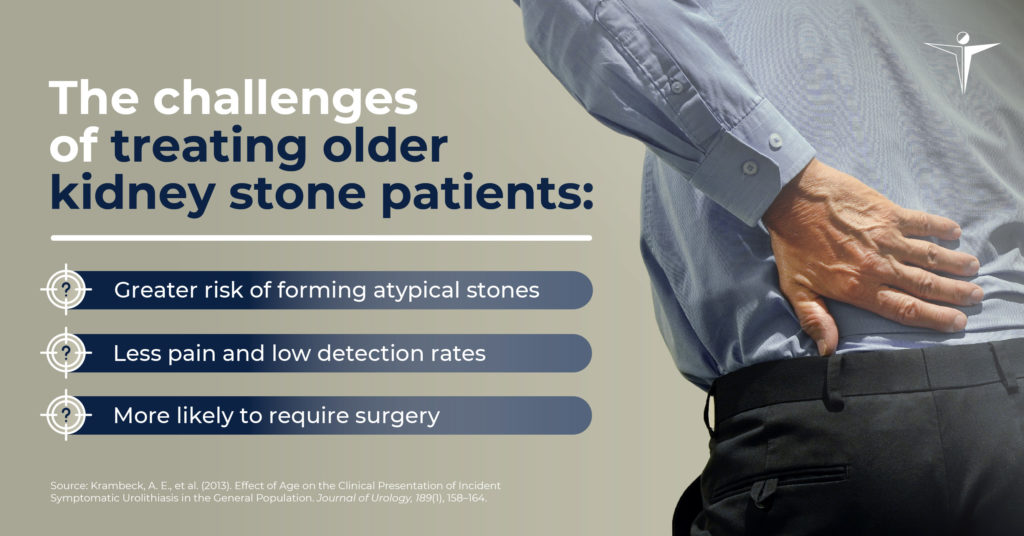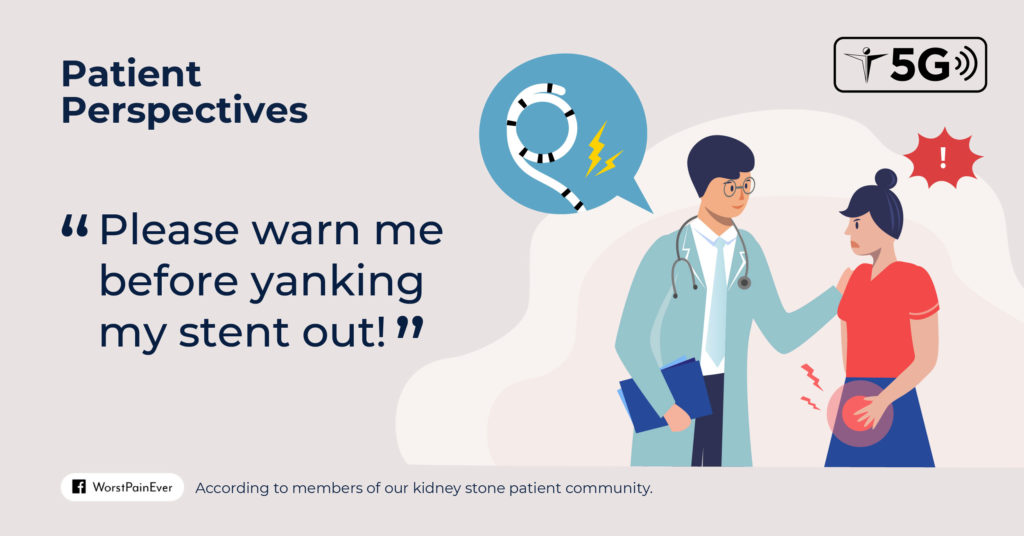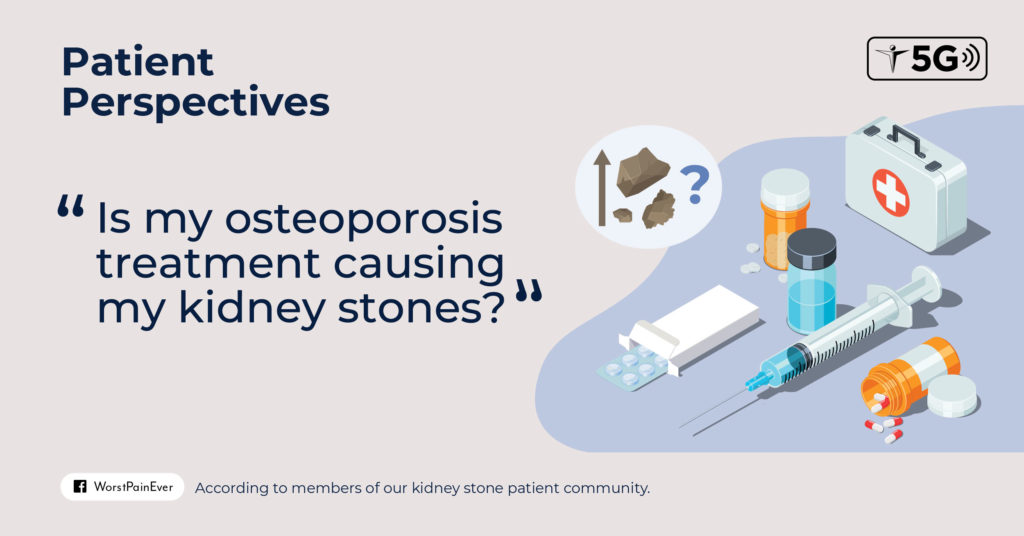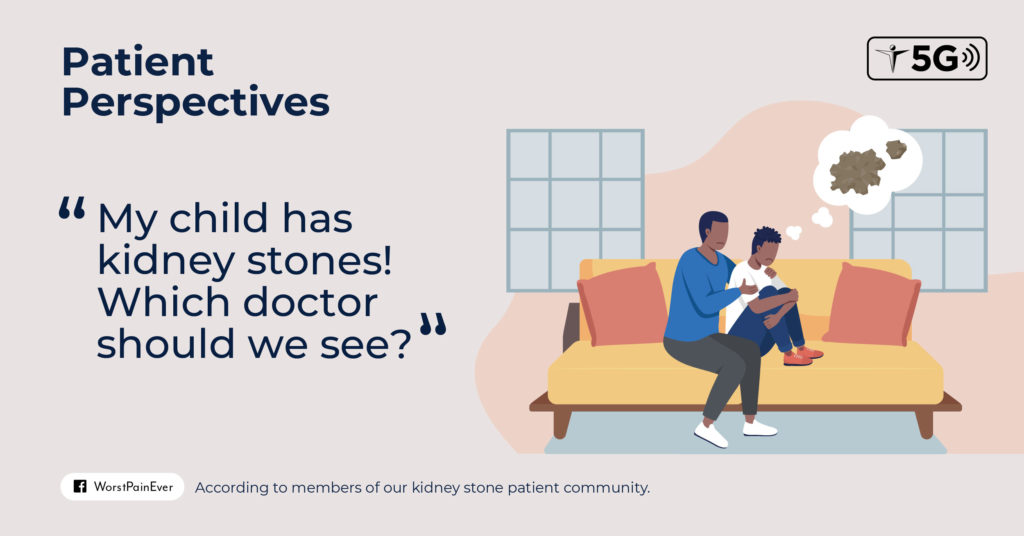According to a study published in the Journal of Urology, older patients are more prone to developing uric, brushite and atypical stones, and more likely to require surgery. Additionally, they tend to experience less or no pain during stone incidents, which may result in treatment delays.
When meeting patients above 60 years old, urologists should raise their index of suspicion for kidney stones, even they only present minor symptoms.





